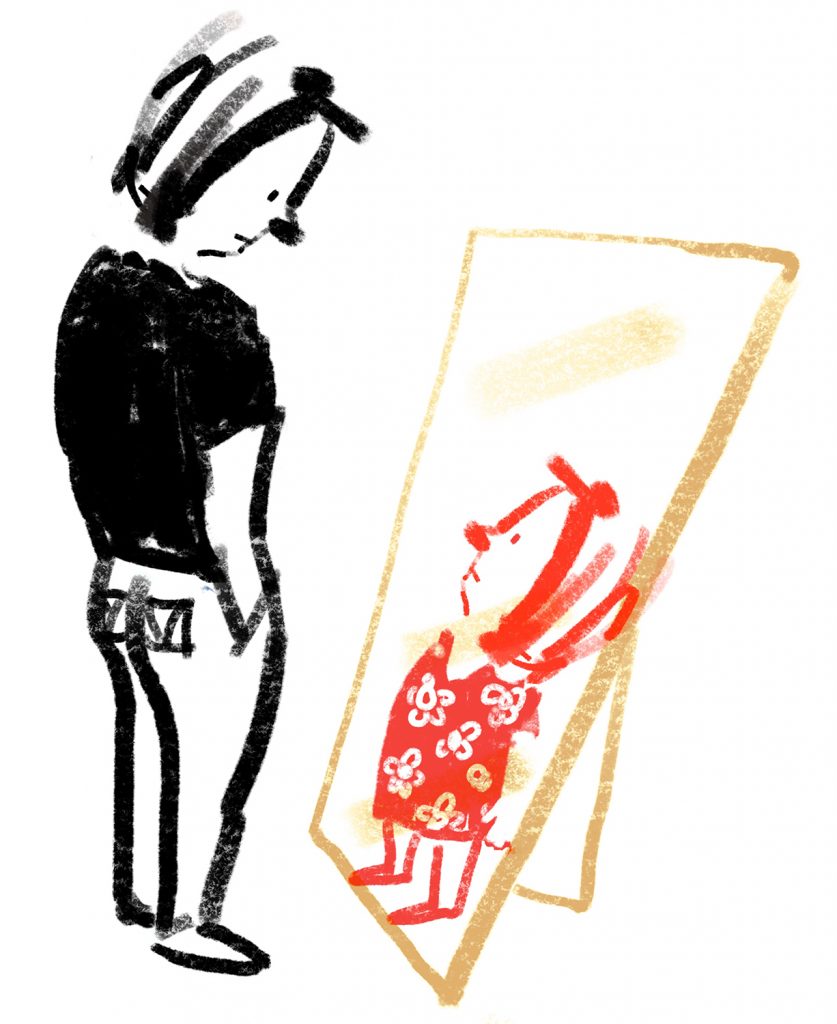Introduction
Empathy is defined as ‘the ability to understand and share the feelings of another’. Of course, we can never know exactly how someone else feels or sees a situation, but we can try.

The pages that follow suggest situations, sometimes exaggerated, sometimes not, in which our experiences might be similar to a child’s.
Trying to take a child’s perspective helps us see more clearly how much there is to learn and figure out in their early years—and what a challenge that is when there are so many contradictory messages, so many adults not practising what they’re preaching. For example: an adult is having a coffee. A young child approaches and reaches for the cup. The adult pulls it away and admonishes the child: ‘No, don’t touch, it’s hot.’ Clear message, right? But what does the adult do? Not only touches the cup, but drinks from it! It’s amazing that children do figure out so much so quickly. It’s a good thing they are excellent learners.
If we could see the world the way a young child sees it, we might understand that a looming, bearded, deep-voiced person whom you don’t know can be terrifying. Your mother saying that it’s Uncle Hamish doesn’t make it less so.
Tantrums are often misunderstood. They sometimes occur when young children have too many choices or temptations (for example, the lollies placed just at their level at the supermarket checkout); when they are tired; or when the demands of the world overwhelm. A tantrum may be a child’s way of saying, ‘I’m out of control, I just can’t cope’—like the way we feel at the end of a day when many things have gone wrong.
Children may see the world differently in some ways, but when it comes to human needs—belonging, being valued, contributing and feeling competent—children are much more like us than they are different from us.
About the Author
Anne Stonehouse AM
Anne Stonehouse AM has been a consultant, speaker, workshop presenter, writer and developer of videos and other resources in early childhood education and care for over 45 years. She was a member of the writing team that developed the national Early Years Learning Framework (EYLF), and has been involved in many EYLF-related projects. Her most abiding professional interest is in children aged birth to three years.
Anne initiated and chaired the national Working Party for Australian Early Childhood Association (as Early Childhood Australia was formerly known) that developed the original Code of Ethics, which was launched in 1991. In recognition of her contribution to children and children’s services, Anne was appointed as a Member of the General Division of the Order of Australia in 1999.
About the Illustrator
Oslo Davis
Oslo Davis is a Melbourne-based illustrator, artist and teacher. His work has appeared in the New York Times, the Age and the Guardian, among many others. Oslo has also published many books, most notably ‘This Annoying Life – A mindless colouring book for the highly stressed’. Find out more about Oslo Davis at www.oslodavis.com

This online resource is proudly brought to you by: Gowrie Victoria & Early Childhood Australia

